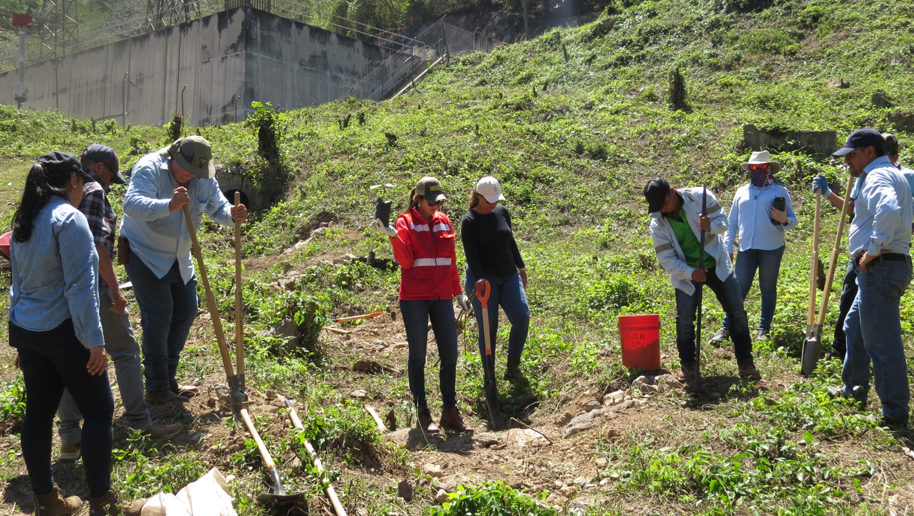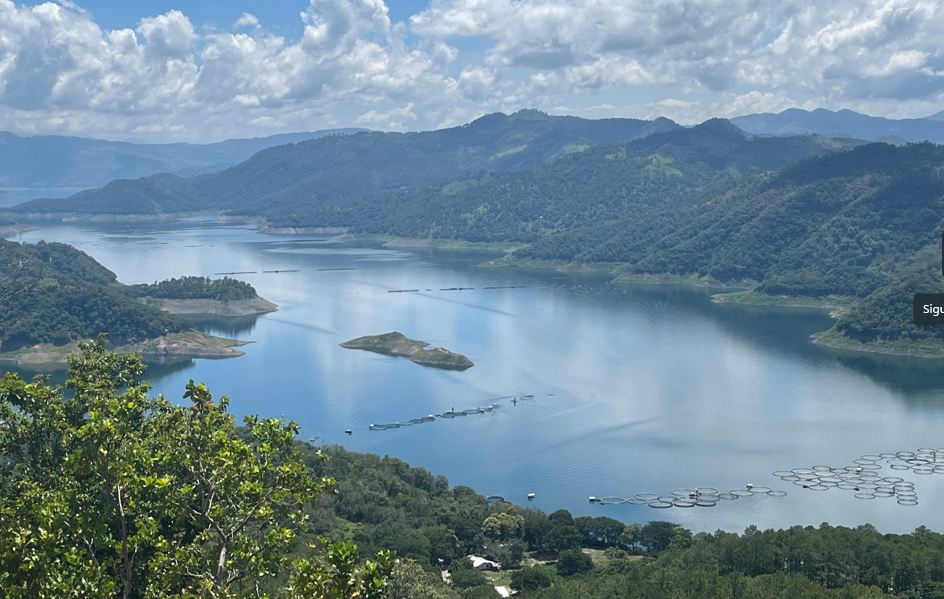Generally, when we hear the name Inter-American Development Bank (IDB), we particularly associate it with financing, work at the policy and regulatory level, activities in the city, sitting in front of a computer… In this blog I share another angle: the human and field perspective with its teachings and reflections.
Within the framework of the preparation of the project “Low Carbon, Climate Resilient and Inclusive Development in the El Cajón and Yojoa Lake Watersheds in Honduras”, in February, we carried out a theoretical-practical training on the implementation of nature-based solutions , which focus on the protection, conservation, restoration, management and sustainable use of ecosystems to address climate change, as well as water and food security, while simultaneously providing benefits in terms of human well-being, ecosystem services, resilience and biodiversity. The implementation of these solutions is an essential element of the project since it focuses on watersheds of high relevance for their biodiversity, water contribution, livelihoods, and energy generation (the two most important hydroelectric complexes in the country are in this area). The above, considering the nexus between forest cover, water security and energy generation, as well as the needs of people and micro, small and medium-sized enterprises (MSMEs) that depend on natural resources for their livelihoods.

I had the valuable opportunity to participate in the last day of the training, where we carried out a reconnaissance of areas with soil instability and identified – in surrounding areas – how the ecosystem naturally includes various measures to reduce said instability (for example, through combinations of different types of native vegetation including trees, shrubs, and forage). Below, I share some reflections:
1. The opportunity to reinforce dialogue and multidisciplinary work. The team was made up of civil, forestry, agriculture, and environmental engineers from various hydroelectric plants in the country. When implementing the actions, the strengths of each specialty were combined, generating synergies and a comprehensive approach, as well as a space for dialogue and exchange of experiences and diverse points of view. Comments were made, among others, on the opportunity to combine civil works with vegetation coverage to address soil instability.
2. Assess and recognize the challenges that arise in practice, beyond the offices. Frequently we have an incomplete picture of the situation, of what the implementation of actions in the field entails, the challenges faced by producers, households, and companies for which we are designing or implementing projects. It is important to listen, try to understand, put yourself in the shoes of others, and experience (although partially and for a short period of time) what is happening on the ground. For example, we noticed that the execution of the proposed solutions involves working under difficult weather conditions and considerable physical effort. Several participants commented that this field work made them think about the perception, sometimes erroneous, that someone may not have put in their full effort since minimal progress was made during the workday.
3. Maintain the human focus. The day after I returned from training, I noticed that I had over fifty tick bites. Work in the field has challenges, it has difficulties that we are unaware of and that, in a certain way, we manage to dimension when we experience them. I am aware that the challenges go beyond tick bites. My discomfort over an isolated event does not compare to what many people experience every day, it is just a way to highlight the need to try to see beyond, to understand and know who we work for. Let’s keep in mind that development has a human connotation, it involves people from our countries, it addresses the satisfaction of their needs and the improvement of their living conditions.
I visited the doctor to treat the tick bites, I was prescribed ointment and antibiotics. I have the mentality that things happen for a reason, and they leave us with a lesson, a learning experience. In this case, I would summarize it by saying that like the treatment against tick bites, we must take an antibiotic against indifference, to stop believing that we have all the knowledge and trying to implement actions without considering the context and the people. Also, we need to apply daily ointment to remember the human perspective and recognize that an action, no matter how small it may seem (like a tick) can make a difference.


Leave a Reply